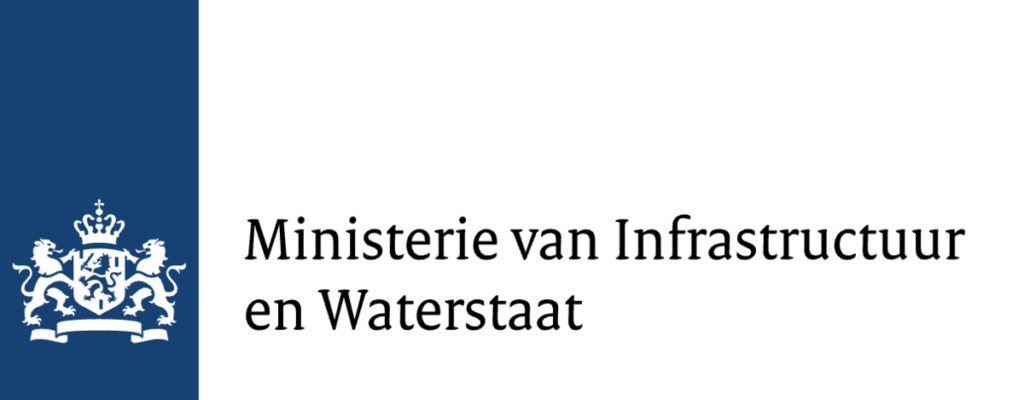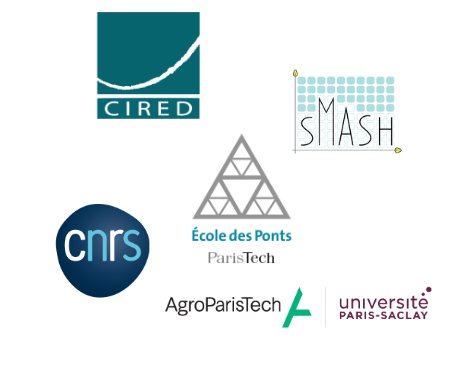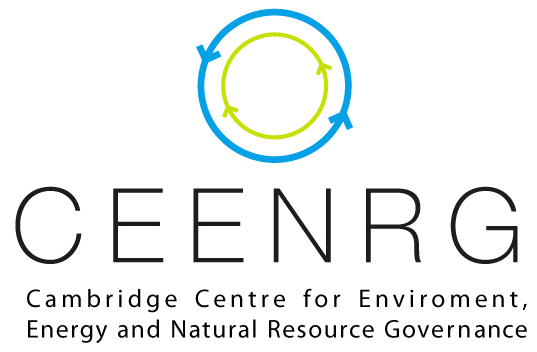FONDAZIONE CENTRO EURO-MEDITERRANEOSUI CAMBIAMENTI CLIMATICI (CMCC)
The Fondazione Centro Euro-Mediterraneo sui Cambiamenti Climatici (CMCC) is a non-profit research institution. CMCC’s mission is to investigate and model our climate system and its interactions with society to provide reliable, rigorous, and timely scientific results, which will in turn, stimulate sustainable growth, protect the environment, and develop science-driven adaptation and mitigation policies in a changing climate. CMCC collaborates with experienced scientists, economists, and technicians, which work together in order to provide full analyses of climate impacts on various systems such as agriculture, ecosystems, coasts, water resources, health, and economics. CMCC also supports policymakers in setting and assessing costs, mitigation, and adaptation policies.
Within CMCC, the RFF-CMCC European Institute on Economics and the Environment (EIEE) is the entity directly involved in the PRISMA project.

POTSDAM INSTITUTE FOR CLIMATE IMPACT RESEARCH (PIK)
The Potsdam Institute for Climate Impact Research (PIK), founded in 1992, is a non-profit research institute addressing crucial scientific questions in the fields of global change, climate impacts and sustainable development. The institute develops and uses a significant number of globally renowned and complex computational models which allow its scientists to assess many aspects of climate and global change phenomena ranging from ice sheets via land-use changes to the economic costs of decarbonisation of the economy. PIK devotes substantial resources to upholding modelling standards and practice and to model intercomparison. Also, it is involved in several projects with international partners around the world and plays an active role in activities such as the Intergovernmental Panel on Climate Change (IPCC).

INTERNATIONAL INSTITUTE FOR APPLIED SYSTEMS ANALYSIS (IIASA)
IIASA is an international scientific institute that conducts policy-oriented research into problems that are too large or complex to be solved by a single country or academic discipline. Funded by research funding agencies in Africa, the Americas, Asia, and Europe, IIASA is independent and unconstrained by political or national self-interest. Over 300 mathematicians, social scientists, natural scientists, economists, and engineers from 50 countries carry out research at IIASA in Austria, at the heart of Europe. IIASA has a long and successful history of developing systems-based, integrated solutions and policy advice for some of the world’s most pressing problems. These include energy resource issues, climate change, environmental pollution, land use, risk and resilience, and population growth. These multiple dimensions require a unique approach that can link diverse complex systems.

MINISTERIE VAN INFRASTRUCTUUR EN WATERSTAAT (PBL)
PBL Netherlands Environmental Assessment Agency is the national institute in the Netherlands for strategic policy analysis in the fields of environment, nature and spatial planning. PBL plays an important role in international assessment of global environmental change. The team involved in the integrated assessment model IMAGE produces scenarios of climate policy and climate change in terms of energy and land use and emissions of greenhouse gases and emissions. The IMAGE team has been involved in several European research projects and plays a key role in the development of scenarios for climate change assessment by IPCC. PBL researchers play an active role in various international assessments, including those of the Intergovernmental Panel on Climate Change (IPCC), UNEP’s Global Environmental Outlook (GEO), and the Global Land Outlook. PBL has extensive experience on advising policy-makers on climate policy, including the European Commission and the Netherlands’ government.

E3-Modelling is a private capital company, established in Greece, as a knowledge-intensive consulting company spin-off inheriting staff, knowledge and software-modelling innovation of the laboratory E3MLab of the National Technical University of Athens (NTUA). The company specialises in the delivery of consulting services based on large-scale empirical modelling of the nexus economy-energy-environment. The experience goes back to 1990 and includes internationally renowned milestones, such as the models PRIMES and GEM-E3 and the support of major impact assessment studies and scenario building of the European Commission. The group performs since 1990 a European energy and transport outlook published every 2-3 years by the European Commission. E3-Modelling has well renowned research records in modelling economic growth, sectorial growth and employment at an international level based on the GEM-E3 model which is the most-used macroeconomic general equilibrium model in Europe.

ECOLE NATIONALE DES PONTS ET CHAUSSEES (ENPC)
CENTRE NATIONAL DE LA RECHERCHE SCIENTIFIQUE (CNRS)
SOCIETE DE MATHEMATIQUES APPLIQUEES ET DE SCIENCES HUMAINES
CENTRE INTERNATIONAL DE RECHERCHE SUR L’ENVIRONMENT ET LE DEVELOPPEMENT (CIRED)
The Centre international de recherche sur l’environnement et le développement (CIRED) is an interdisciplinary research laboratory at large economic dominant created in 1973 by Ignacy Sachs, on the basis of a core group that came together in 1971 as the Development Strategy Research Group. The work of CIRED is devoted to the study of the relationship between modes of economic regulation and the genesis of the technical universes that structure the relationship between human activities and the natural and constructed biophysical environment. The aim is to understand how institutions, economic incentives and social conventions shape technical choices and consumption patterns, and then to study the economic and social feedbacks of their environmental impacts.

Established in 2005, it is independent and non-doctrinal. Bruegel’s mission is to improve the quality of economic policy with open and fact-based research, analysis and debate. We are committed to impartiality, openness and excellence. Bruegel’s membership includes EU Member State governments, international corporations and institutions. Through publications, events, social media, podcast, and a lively blog, Bruegel has carved a unique discussion space for everyone interested in improving the quality of economic policy, and features highly in several Think Tank awards and rankings. Through a dual focus on analysis and impact, and dynamic relationships with policymakers at every governance level, it has also established itself as a vibrant laboratory for economic policies.

FUNDACJA WARSZAWSKI INSTYTUT STUDIOW EKONOMICZNYCH I EUROPEJSKICH
WiseEuropa is an independent think-tank and research organization based in Warsaw that undertakes a strategic reflection on European politics, foreign policy and economy. The Institute employs a unique research toolkit, which enables to unite quantitative and qualitative approach through the application of: statistical and econometric methods as well as macroeconomic and system modelling in combination with sociological, political and institutional analysis. The research experience in the fields of national, European and global socio-economic and institutional policies, digital economy and innovation as well as energy, climate and environmental policies allows WiseEuropa to offer analytical, consulting and communication services on the cross-cutting policy issues.

University of Geneva (UNIGE) is the second largest university in Switzerland and has a strong international reputation for the quality of its research and teaching. UNIGE Renewable Energy Systems group at the Department F.-A. Forel for Environmental and Aquatic Sciences and the inter-faculty Institute for Environmental Sciences conducts research in three areas: (i) renewable energy systems; (ii) socio-technical energy solutions; and (iii) long-range energy projections. UNIGE Renewable Energy Systems group also participates in Swiss Competence Center of Energy Research-Supply of Electricity and Competence Center for Research in Energy, Society and Transition that unite Swiss universities, research institutes, key industry partners, and federal offices in researching, developing, and testing solutions for the implementation of the Swiss Energy Strategy 2050.

Founded by the Swiss federal government in 1854, it was modeled on the École polytechnique in Paris, with the stated mission to educate engineers and scientists; the school focuses primarily on science, technology, engineering, and mathematics, although its 16 departments span a variety of disciplines and subjects. Two research groups working on public policy, will closely collaborate for the PRISMA project: Energy and Technology Policy Group & Climate Finance and Policy Group.

The Paul Scherrer Institute PSI is the largest research institute for natural and engineering sciences in Switzerland, conducting cutting-edge research in four main fields: future technologies, energy and climate, health innovation and fundamentals of nature. PSI develops, builds and operates complex large research facilities. Every year, more than 2500 scientists from Switzerland and around the world come to PSI to use our unique facilities to carry out experiments that are not possible anywhere else. Researchers in the areas of Future Technologies and Fundamentals of Nature study the internal structure of a wide range of different materials. Results contribute towards a better understanding of processes occurring in nature and provide starting points in the development of new materials for technical applications. The goal of activities in the Energy and Climate area is to develop new technologies to facilitate the creation of a sustainable and secure supply of energy, as well as an uncontaminated environment.

The University of Oxford is one of the world’s leading research-intensive universities. The Environmental Change Institute (ECI) is an interdisciplinary unit within the School of Geography and the Environment at the University of Oxford. The ECI was established in 1991 to organize and promote interdisciplinary research on the nature, causes and impact of environmental change and to contribute to the development of management strategies for coping with future environmental change. Over the last three decades ECI researchers have developed an international track record for research in climate, ecosystems and energy and a growing expertise in the fields of food and water through an interdisciplinary and integrated programme of understanding processes of change; exploring sustainable solutions; and influencing change through education and partnership.

The Chancellor, Masters and Scholars of the University of Cambridge, based in Cambridge, UK is represented in the PRISMA project through Cambridge Centre for Environment, Energy and Natural Resource Governance (CEENRG), hosted by Department of Land Economy. Multidisciplinary research centre established in 2014 to conduct integrative research on the governance of environmental transitions. 10 faculty members and a group of 30 researchers including PhDs, postdocs, and visiting scholars – lawyers, economists, modellers, engineers and social scientists working on various environmental issues, from climate and energy to biodiversity and environmental justice. C-EENRG’s core mission is to conduct integrative research on the governance of environmental transitions, understood as social and technological processes driven by environmental constraints that lead to fundamental changes in social organisation. Their work draws upon the knowledge of the drivers and implications of environmental change generated in various centres across the University of Cambridge and focuses on the law and governance dimensions of environmental transitions. Law is viewed as a technology to bring, guide and/or manage environment-driven societal transformation.

